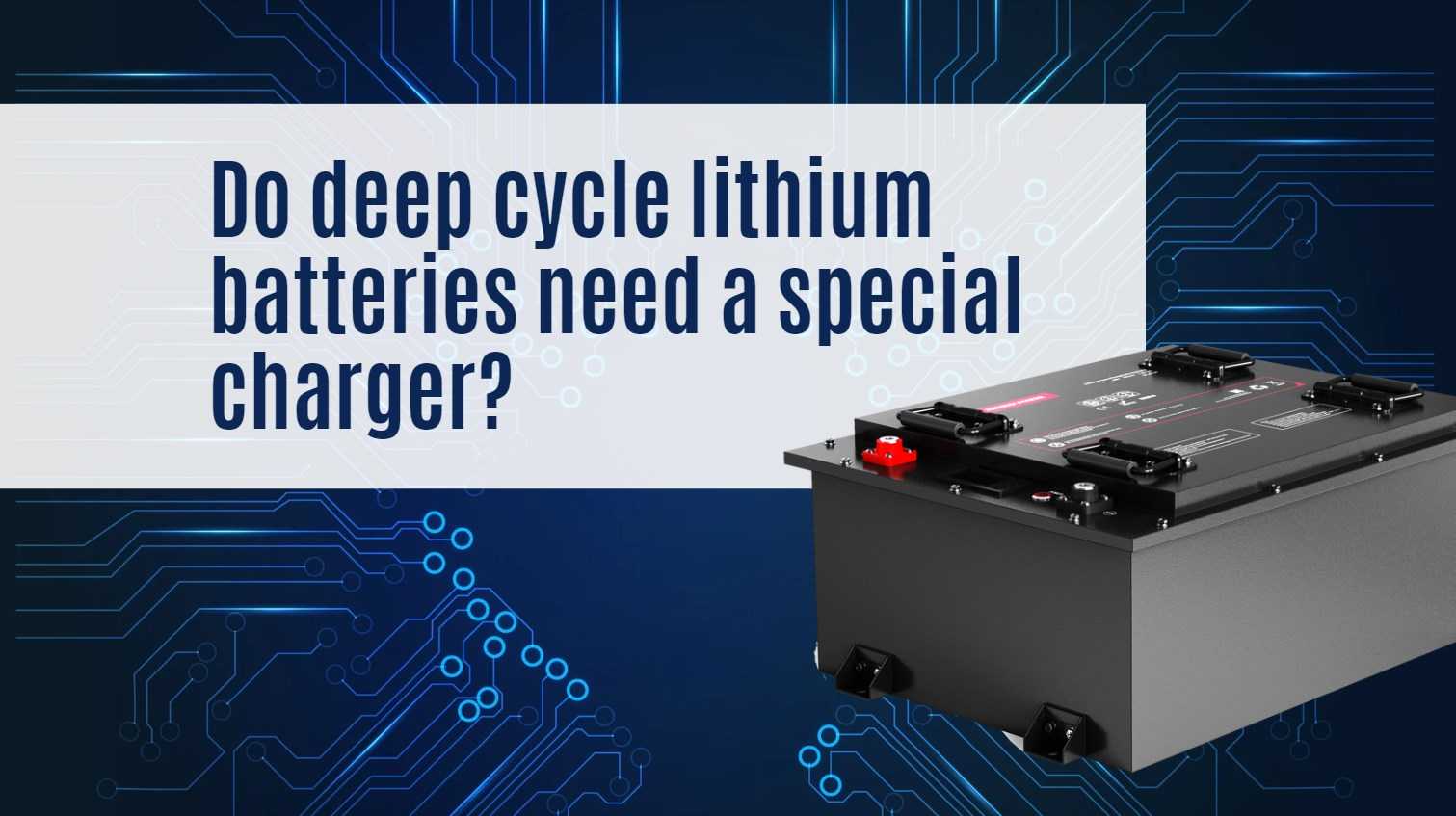Yes, deep cycle lithium batteries require a special charger designed specifically for lithium technology. Using the correct charger ensures optimal performance, safety, and longevity of the battery. Standard chargers for lead-acid batteries do not provide the necessary voltage and charging profile required by lithium batteries, potentially leading to damage.
Understanding the Need for a Special Charger
Deep cycle lithium batteries are engineered with unique chemistry that necessitates specific charging protocols. Unlike traditional lead-acid batteries, which can tolerate a wider range of charging conditions, lithium batteries demand precise voltage and current settings to maintain their health and efficiency.
Key Characteristics of Lithium Battery Charging
- Charging Voltage: A typical 12V lithium battery requires a charging voltage of around 14.4V to 14.6V. Standard lead-acid chargers often provide lower voltages, which will not fully charge the lithium battery.
- Charging Profile: Lithium batteries typically utilize a two-stage charging process: constant current followed by constant voltage. This differs from the charging profiles used in lead-acid batteries, which can lead to improper charging if the wrong charger is used.
- Battery Management System (BMS): Most lithium batteries come equipped with a BMS that monitors voltage, current, and temperature. A compatible charger works in conjunction with this system to optimize the charging process and prevent overcharging.
Benefits of Using a Special Charger
Using a charger designed for deep cycle lithium batteries offers several advantages:
- Enhanced Safety: Specialized chargers minimize the risk of thermal runaway and other safety hazards associated with improper charging.
- Improved Efficiency: These chargers are optimized for lithium technology, ensuring faster and more efficient charging cycles.
- Extended Battery Life: By adhering to the recommended charging protocols, users can significantly extend the lifespan of their deep cycle lithium batteries.
Comparison Chart: Lithium vs. Lead-Acid Charging
| Feature | Deep Cycle Lithium Battery | Lead-Acid Battery |
|---|---|---|
| Recommended Voltage | 14.4V – 14.6V | 13.8V – 14.4V |
| Charging Profile | Constant Current/Constant Voltage | Bulk/Absorption/Float |
| Cycle Life | 2000 – 5000 cycles | 500 – 1500 cycles |
| Efficiency | 95% – 98% | 70% – 80% |
| Weight | Lighter | Heavier |
Common Questions About Deep Cycle Lithium Chargers
1. Can I use a lead-acid charger for my lithium battery?
No, using a lead-acid charger can damage your lithium battery due to incorrect voltage and charging profiles.
2. What happens if I use the wrong charger?
Using an incompatible charger can lead to incomplete charging, overheating, or even permanent damage to the battery.
3. How do I choose the right charger?
Select a charger specifically designed for lithium batteries with appropriate voltage ratings and features compatible with your battery’s BMS.
Latest News
Recent advancements in deep cycle lithium battery technology have highlighted several key trends:
- Increased Adoption: The demand for deep cycle lithium batteries is rising in various sectors, including renewable energy and electric vehicles.
- Innovative Charging Solutions: New smart chargers are being developed that optimize charging based on real-time data from the battery management system.
- Sustainability Focus: Manufacturers are increasingly prioritizing eco-friendly practices in production and recycling processes for lithium batteries.
These trends reflect a growing commitment to improving energy storage solutions across multiple applications.
Redway Expert Comment
“In our extensive experience at Redway Battery, we emphasize that using a specialized charger for deep cycle lithium batteries is crucial for maintaining optimal performance and safety. The unique chemistry of these batteries requires precise voltage and current settings that only dedicated chargers can provide. By investing in the right charging solutions, users can ensure their batteries operate efficiently and last longer.” In conclusion, deep cycle lithium batteries do indeed require special chargers tailored to their specific needs. Utilizing these chargers not only enhances safety but also maximizes performance and longevity. As technology continues to evolve, understanding these requirements will be essential for anyone using or considering deep cycle lithium batteries.



